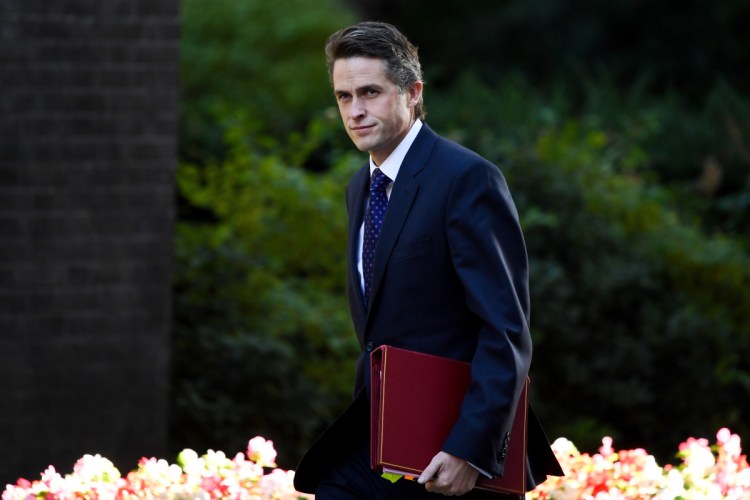BRUSSELS – The British government on Thursday accused Russia’s GRU military intelligence agency of “reckless and indiscriminate cyberattacks,” blaming it for everything from the hacking of top athletes’ medical data to disruptions on the Kiev subway system to attacks on the email accounts of the Democratic National Committee.
The accusation was unusually forthright, going further than ever before in assigning direct blame to the Kremlin for a series of hard-to-trace attacks. It came as Britain continues to investigate Russia for what Downing Street said was its poisoning of ex-spy Sergei Skripal in Salisbury in March. Villagers in Russia’s Far East have said they recognize one of Britain’s suspects in the nerve agent attack as a hometown hero and a decorated military officer.
“Where Russia acts in an indiscriminate and reckless way, where they have done in terms of these cyberattacks, we will be exposing them,” British Defense Secretary Gavin Williamson said Thursday at a meeting with Defense Secretary Jim Mattis and other NATO defense ministers in Brussels. “We believe that by doing so, this will act as a disincentive for acting in such a way in the future.”
Britain’s Foreign Office said that Russian military intelligence was behind six separate cyberattacks between mid-2015 and October 2017. Four of the attacks were newly attributed on Thursday. Although some were high-profile and obviously political, including the hacking of the Democratic National Committee, others ranged across business and media life.
Britain accused the GRU of hacking email accounts at a “small UK-based TV station,” stealing their contents. It blamed Russia for the stealing and subsequent release of confidential athletes’ medical files from the World Anti-Doping Agency. And it said Russia was behind the October 2017 BadRabbit ransomware attack that rendered computer systems inoperable in Ukraine and at the Russian central bank.
Governments have in the past been cautious about attributing similar attacks, in part because their origin can be hard to trace. But Britain and its allies have pushed this year for significantly more transparency, particularly after the Skripal attack in March. Skripal was himself a former military intelligence officer turned double-agent. Russian President Vladimir Putin on Wednesday called him a “traitor” and a “scumbag.”
“The GRU’s actions are reckless and indiscriminate: they try to undermine and interfere in elections in other countries; they are even prepared to damage Russian companies and Russian citizens,” British Foreign Secretary Jeremy Hunt said in a statement. “This pattern of behavior demonstrates their desire to operate without regard to international law or established norms and to do so with a feeling of impunity and without consequences.”
The Pentagon on Wednesday announced that it planned to offer its offensive cybercapabilities to the NATO allies for the first time, further expanding the alliance’s role in what is fast becoming a contested virtual battleground. Mattis has been discussing the issue with fellow defense leaders at the Brussels meetings.
Send questions/comments to the editors.



Success. Please wait for the page to reload. If the page does not reload within 5 seconds, please refresh the page.
Enter your email and password to access comments.
Hi, to comment on stories you must . This profile is in addition to your subscription and website login.
Already have a commenting profile? .
Invalid username/password.
Please check your email to confirm and complete your registration.
Only subscribers are eligible to post comments. Please subscribe or login first for digital access. Here’s why.
Use the form below to reset your password. When you've submitted your account email, we will send an email with a reset code.